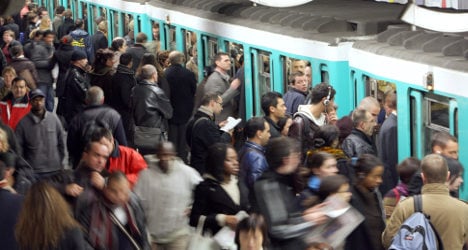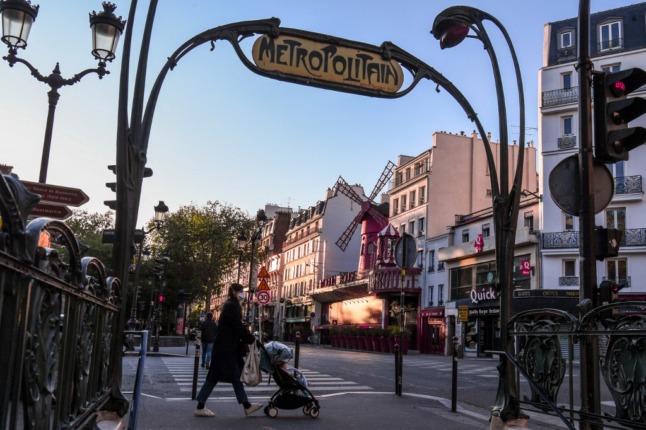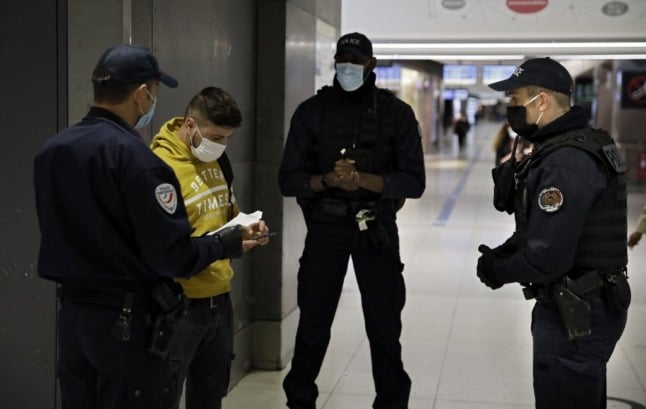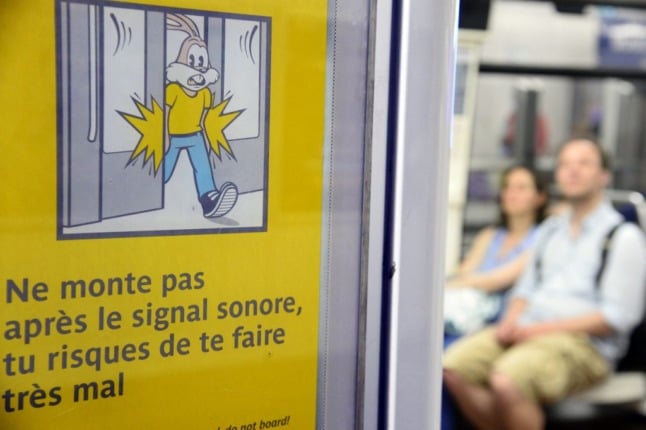Authorities are hoping free rides on Paris's massive public transport network this weekend will be enough to entice drivers to get out of their cars and ease the levels of air pollution plaguing the region.
The French capital has been under maximum pollution alert for several days, as have many other regions across the country.
Jean-Paul Huchon, head of the organisation that oversees transport in Paris and neighbouring areas, said on Thursday that transport would be free from Friday morning to Sunday evening due to the "significant risks to the health of residents."
Overall, more than 30 departments in France were hit by maximum level pollution alerts, prompting Ecology Minister Philippe Martin to say air quality was "an emergency and a priority for the government". In parts of Normandy air pollution levels are already at a record high, according to one expert.
SEE ALSO: Paris pollution: What steps to take to breathe easy
In the cities of Caen and Rouen public transport will be free over the next three days.
In the city of Reims in eastern France, public transport will be free on just Friday as is the case in Grenoble in the Alps, although it may be extended for the following days.
Authorities in the capital reacted by announcing that the Velib' bike sharing scheme and its car version Autolib' would be free from Thursday onwards.
Thursday was the third straight day that the Parisian region was under its maximum alert for air quality.

A lack of wind during the anticyclonic period and cold nights followed by balmy days triggered the poor quality air. Exhaust from cars, heating in buildings and factory emissions were also contributing to the problem.
In general, the smaller and lighter a particle is the longer it stays in the atmosphere and can remain suspended for weeks.
Particles less than 2.5 microns in diameter are also the most dangerous to health as they can pierce the lungs and the blood system. Environmental campaigners say the rise in air pollution is putting people's lives in danger because it can also lead to asthma, allergies and other respiratory ailments. They have lodged a legal complaint, forcing judges to investigate the causes of the pollution.
To see how bad pollution in Paris is, watch this speeded up video of the air around the Eiffel Tower.
Ecology without Borders (Écologie sans Frontière), Breath (Respire) and Unity for the Planet (Rassemblement pour la Planète) have lodged a legal complaint in Paris, on the grounds that pollution levels are endangering people’s lives.
“We are sick of this air pollution,” Nadir Saifi, spokesman of Ecology with Borders told France Info. As soon as the weather is good, and as soon as it's dry in winter you have these peaks in pollution and the emergency wards at hospitals fill up. Slogans and small demonstrations are no longer enough.”
Particles with a diameter of less than 10 microns were reported by regional air monitoring centres various parts of France, including Paris.
Authorities in the capital reacted by announcing that the Velib' bike sharing scheme and its car version Autolib' would be free from Thursday.
The levels of PM 10 – or small particles which easily penetrate the lungs – were reported at 50 micrograms per cubic metre in several areas such as Brittany, the Loire region and parts of wine-producing Burgundy.
According to the World Health Organisation, air pollution has become a major environmental health problem, as it increases risks of getting respiratory and heart diseases.
"The most recent data indicate that in 2010, 223,000 deaths from lung cancer worldwide resulted from air pollution," it said in an October report.
The organisation has since classified outdoor air pollution as "carcinogenic to humans".






 Please whitelist us to continue reading.
Please whitelist us to continue reading.
Member comments